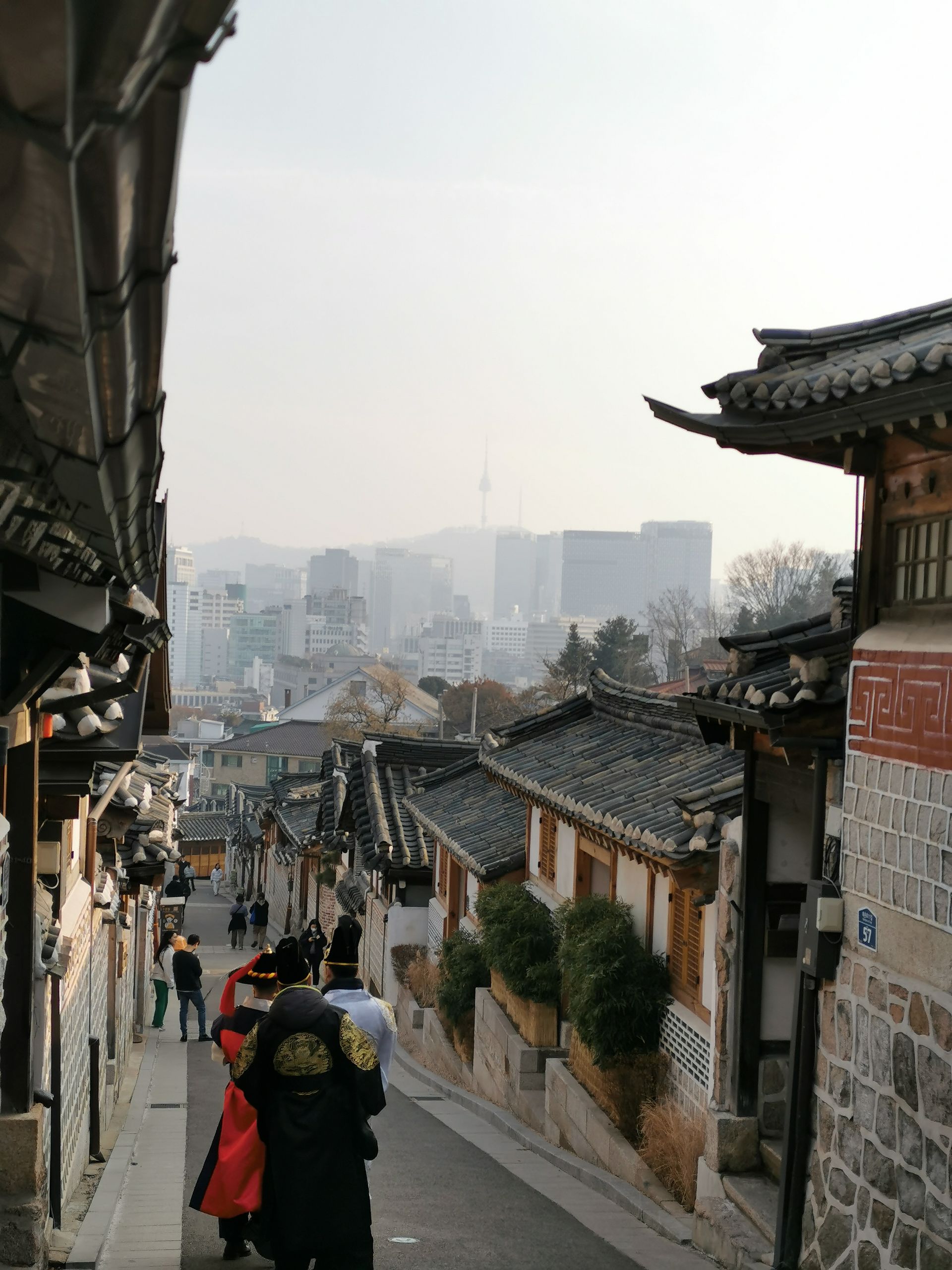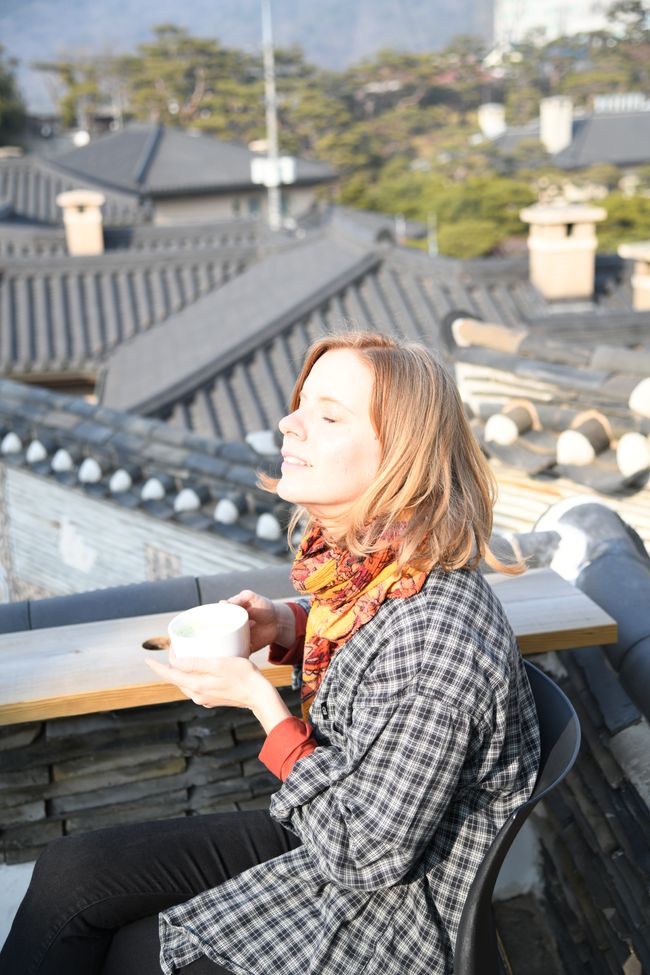
abenteuerkimchi
vakantio.de/abenteuerkimchi
Der Tempel am Meer
Wɔatintim: 30.05.2024
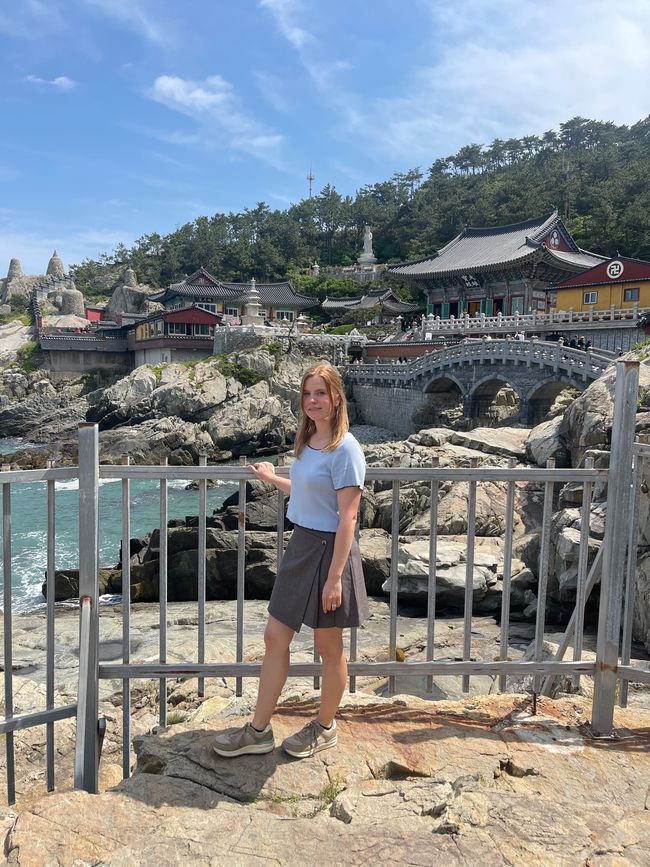
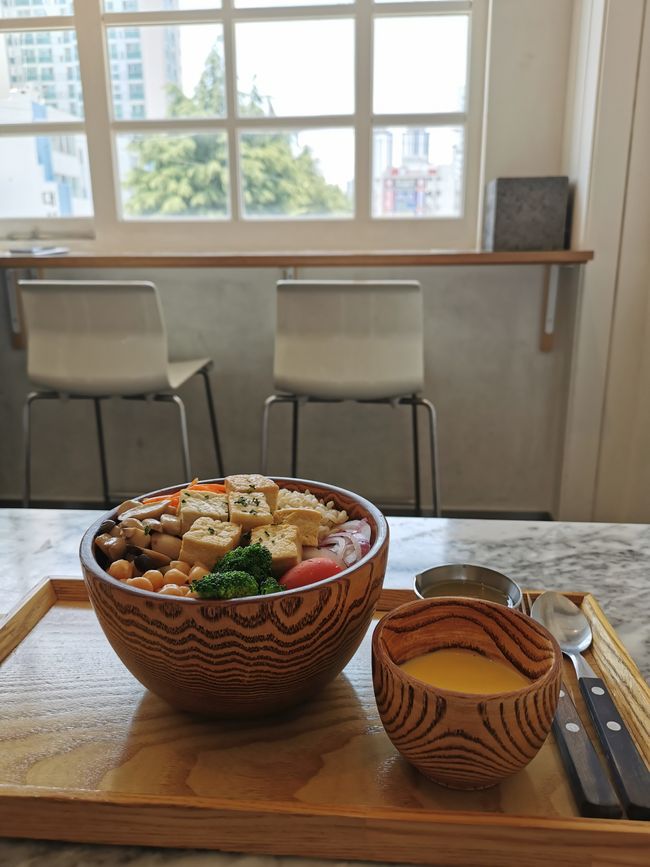
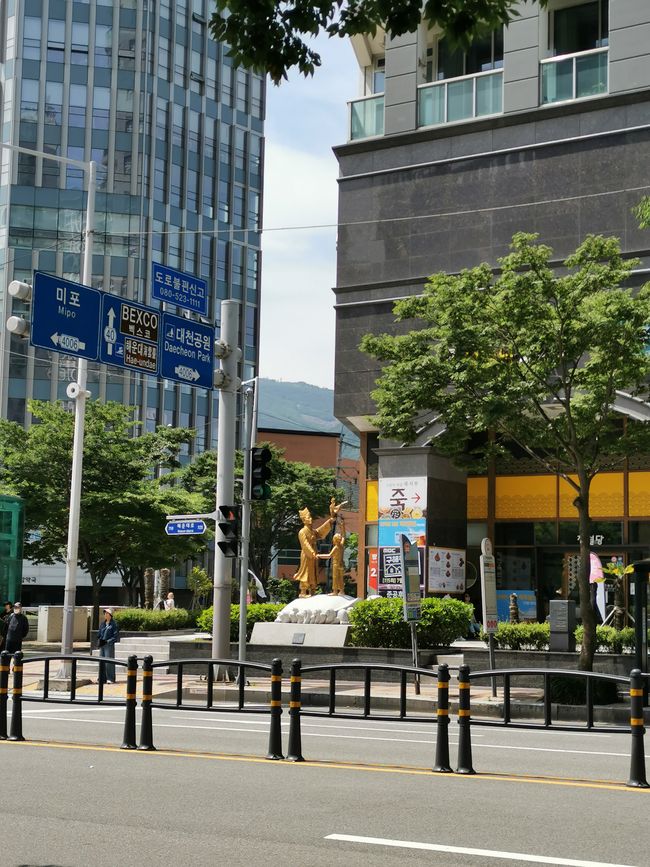
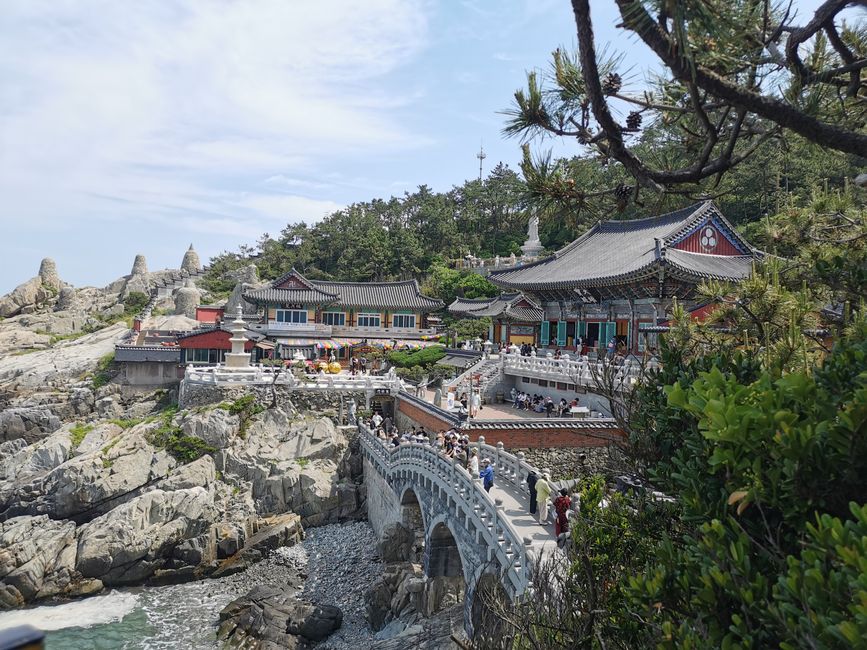
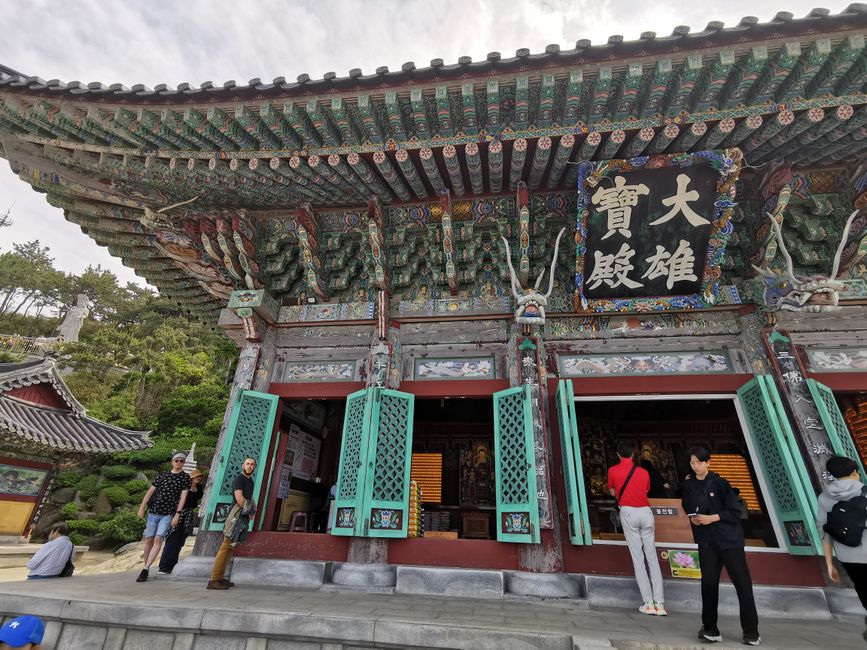
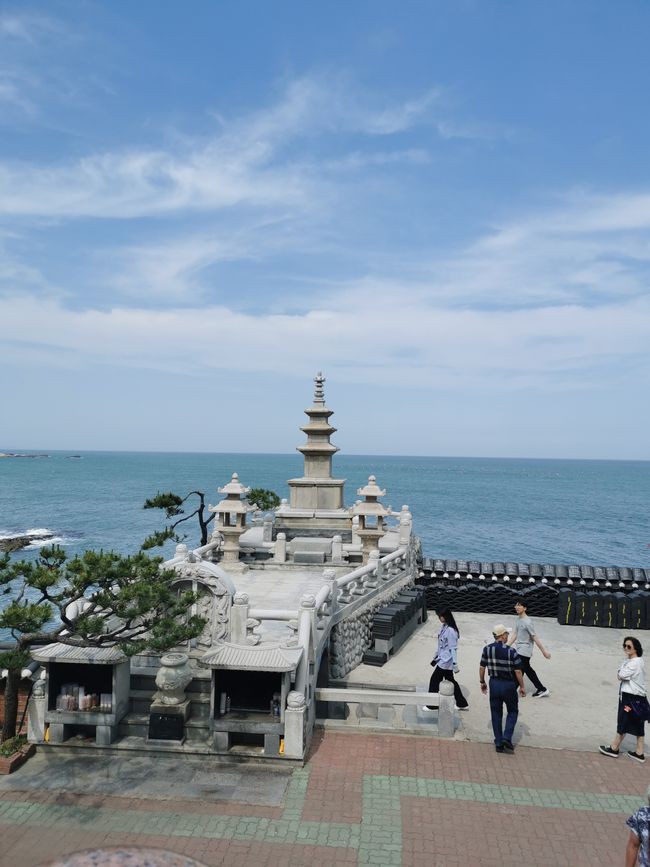
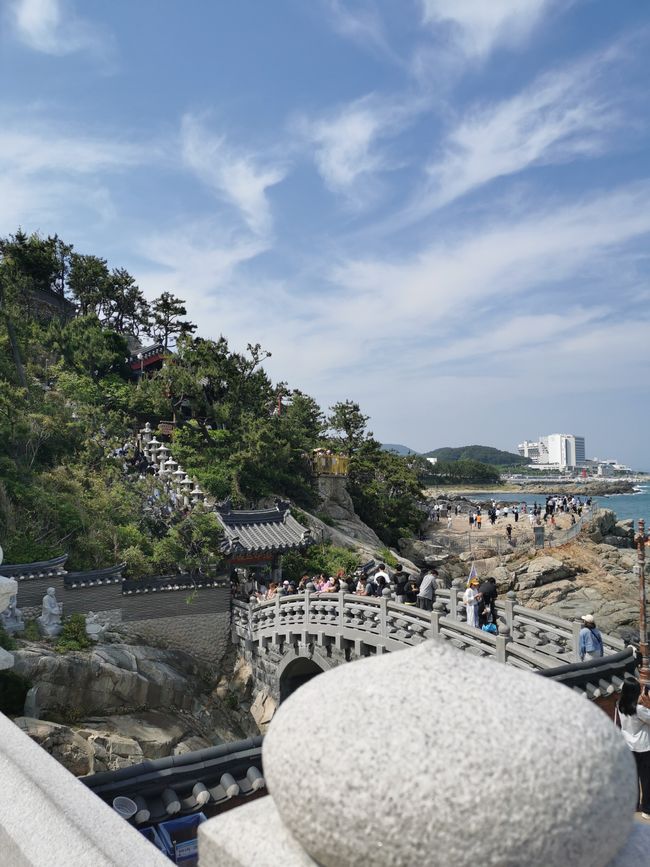
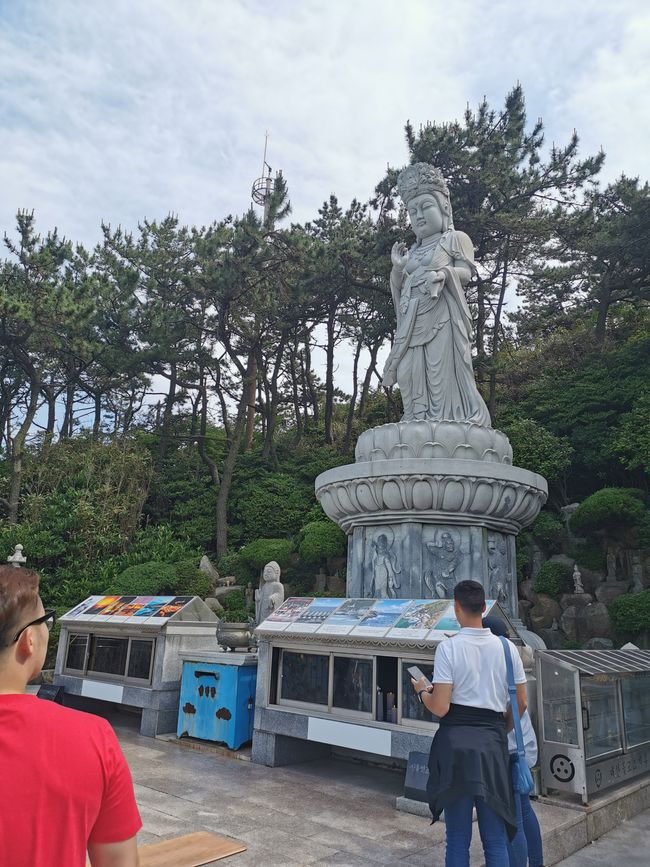
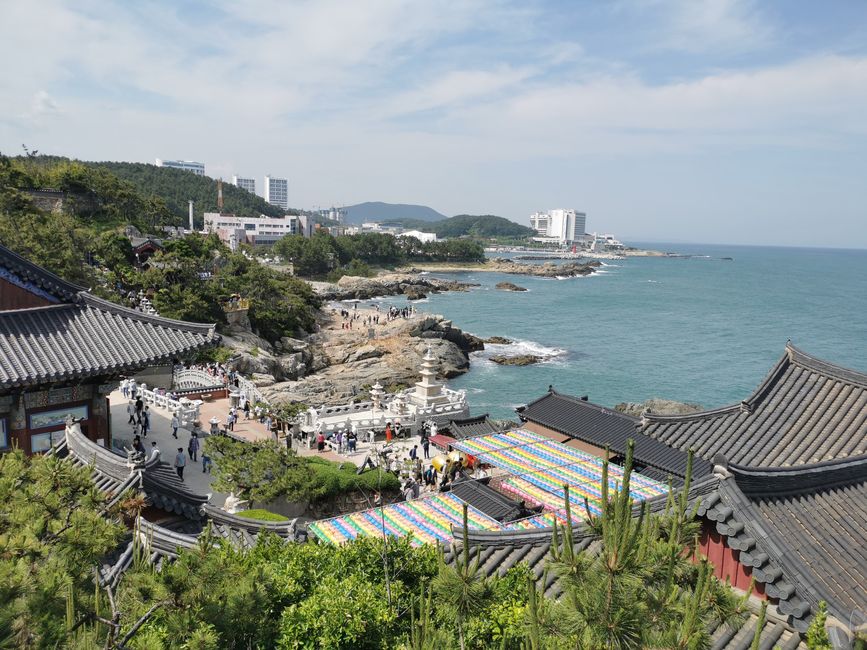
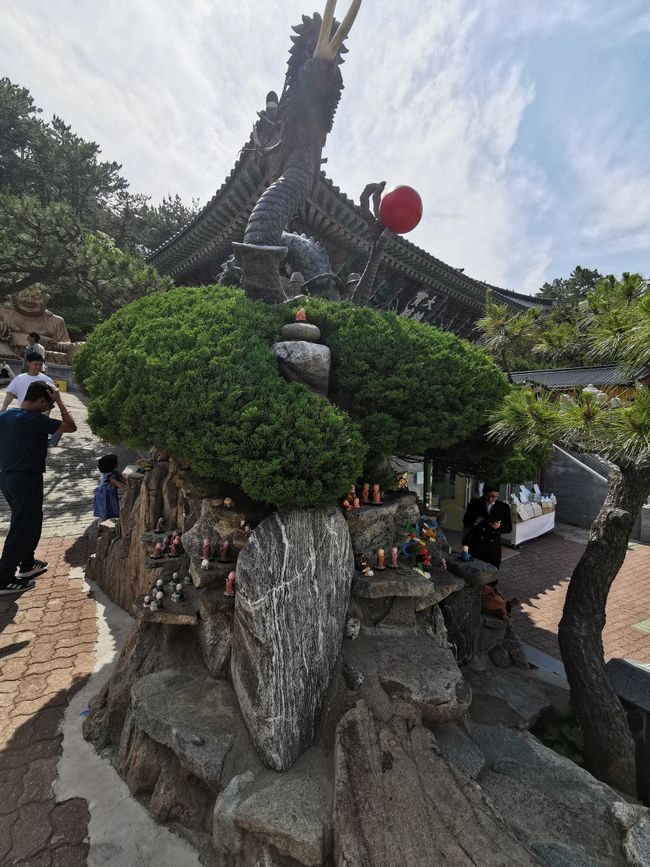
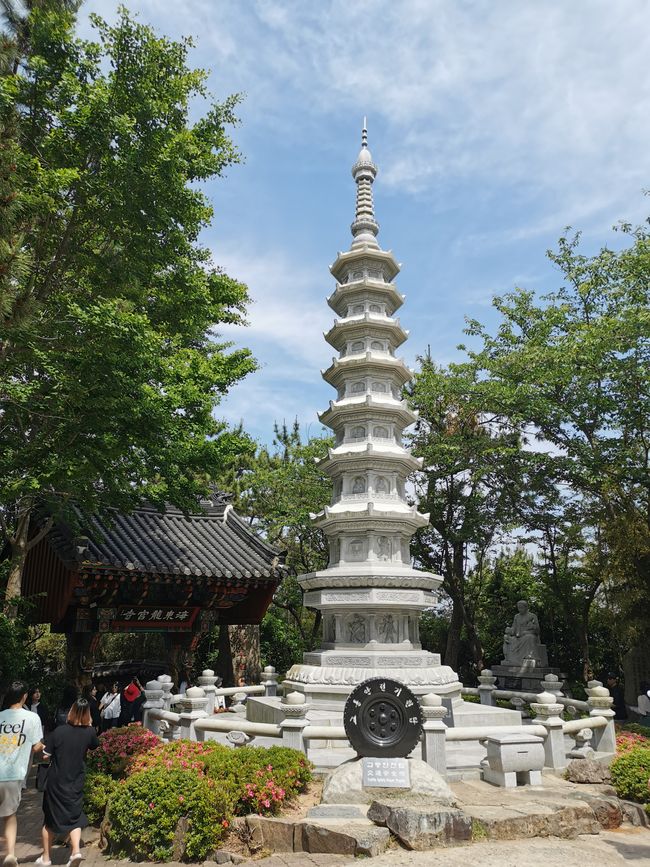
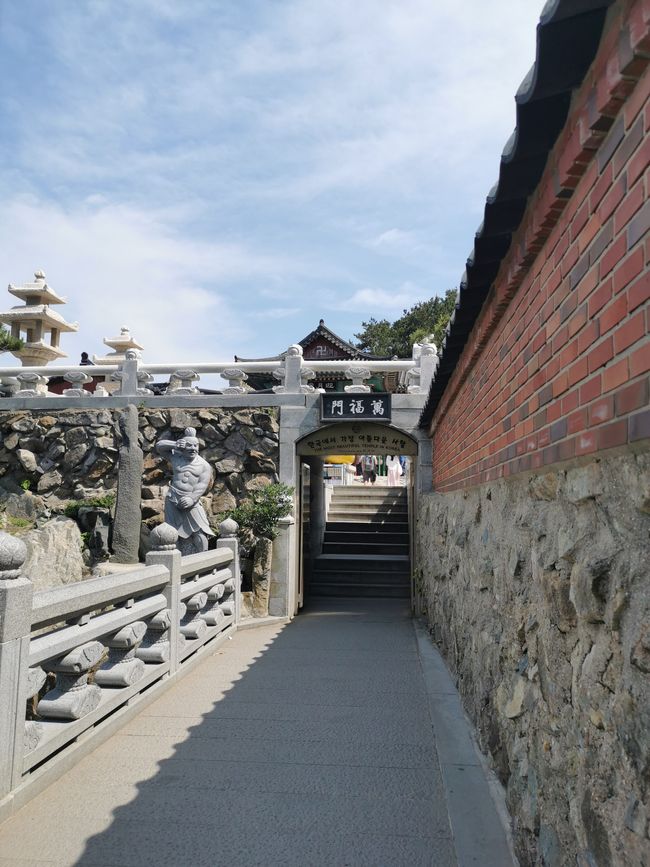
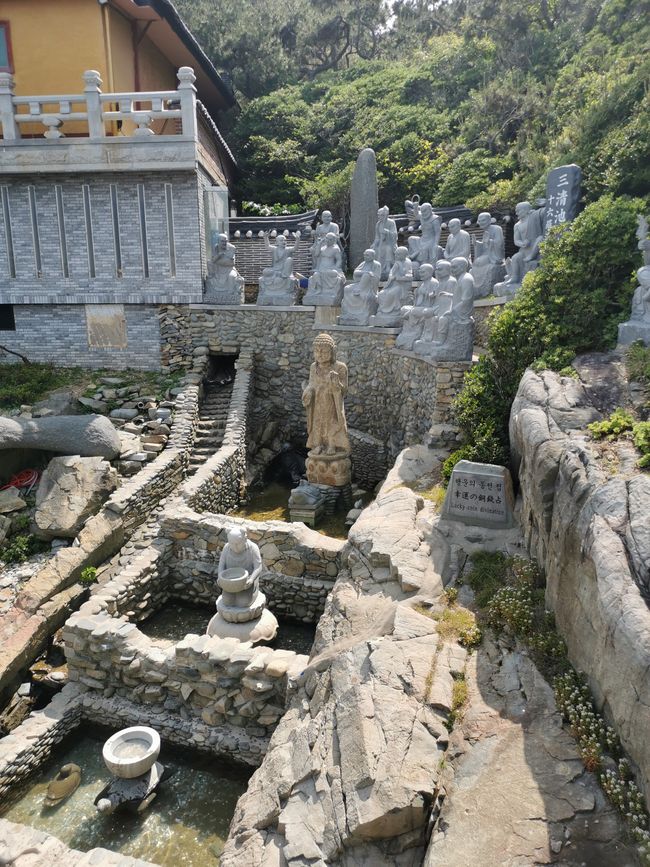
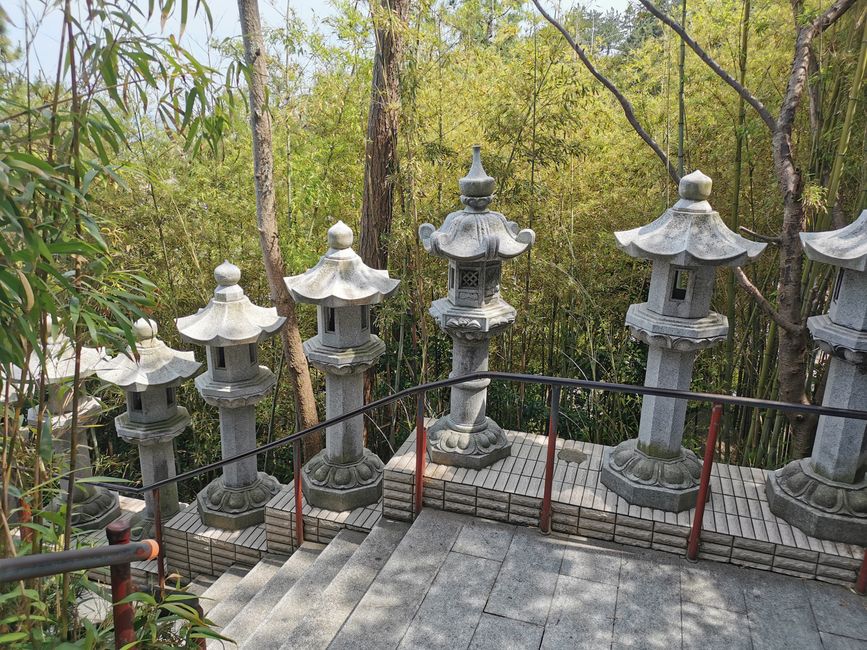
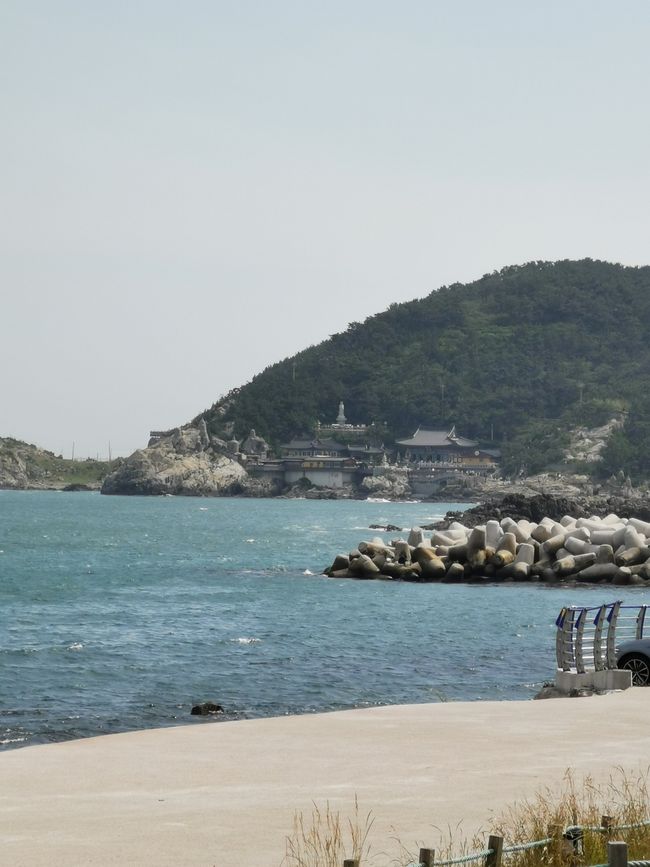
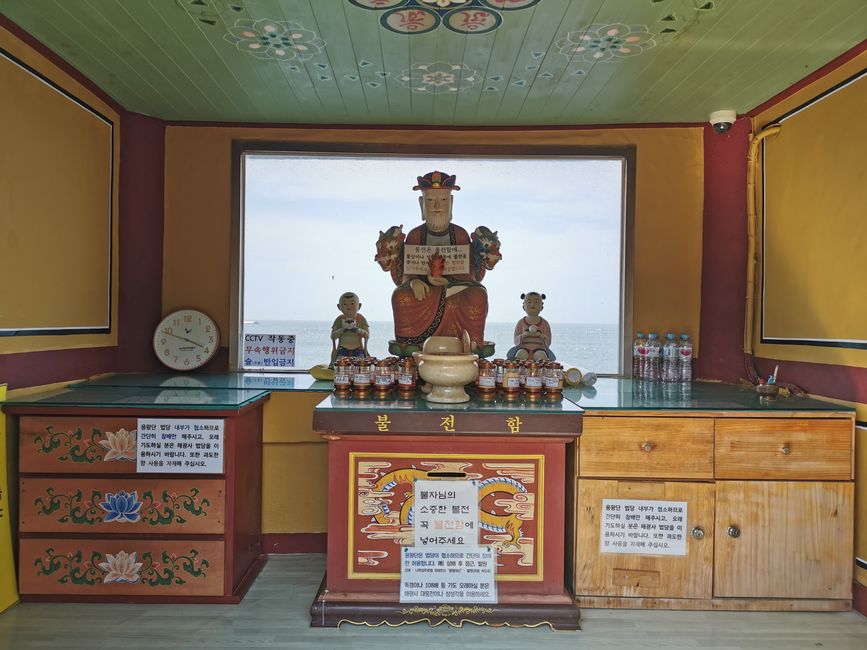
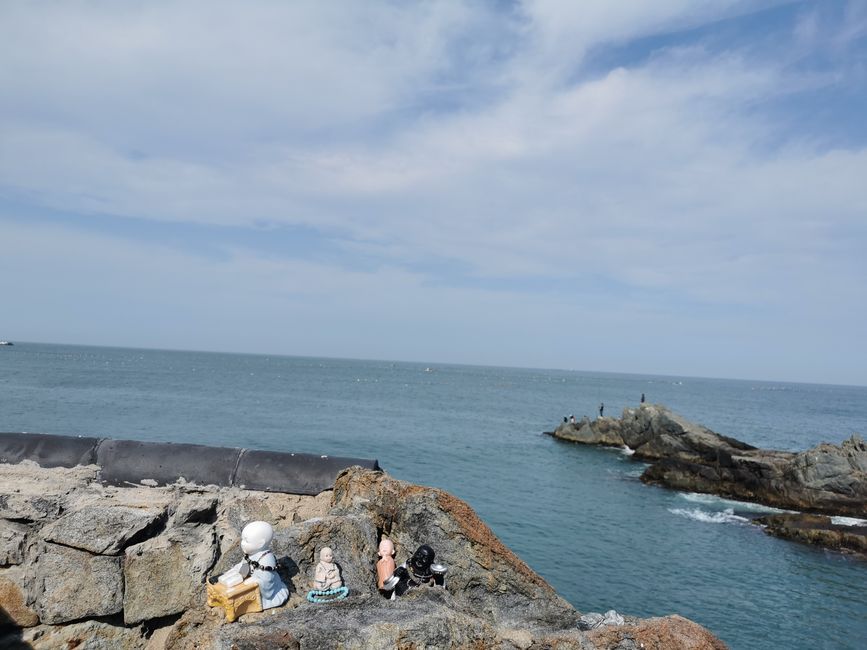
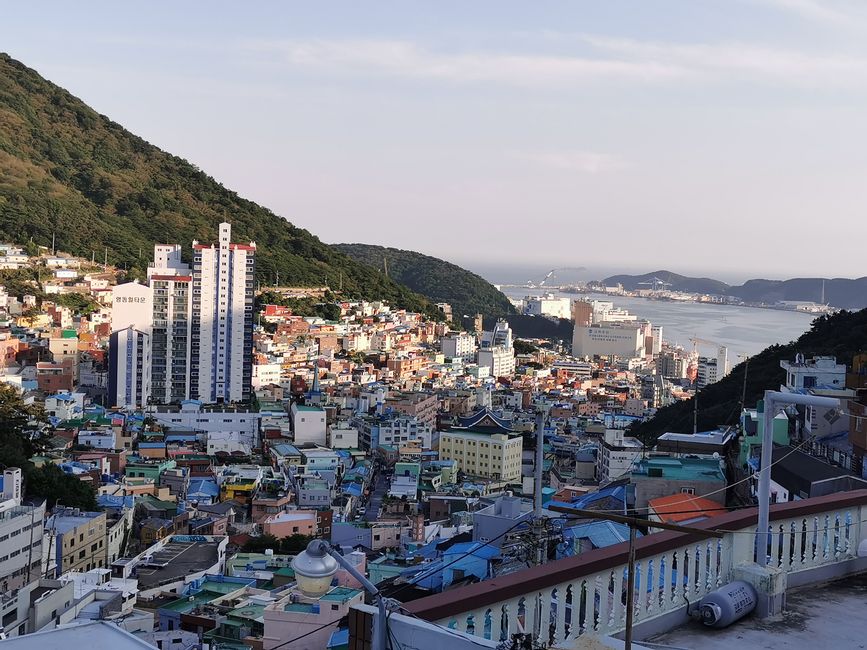
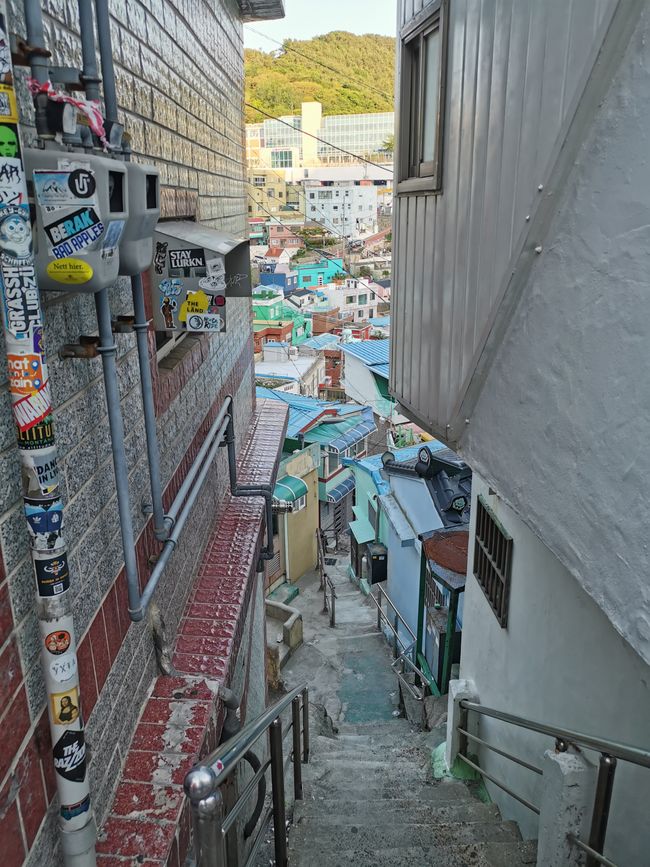
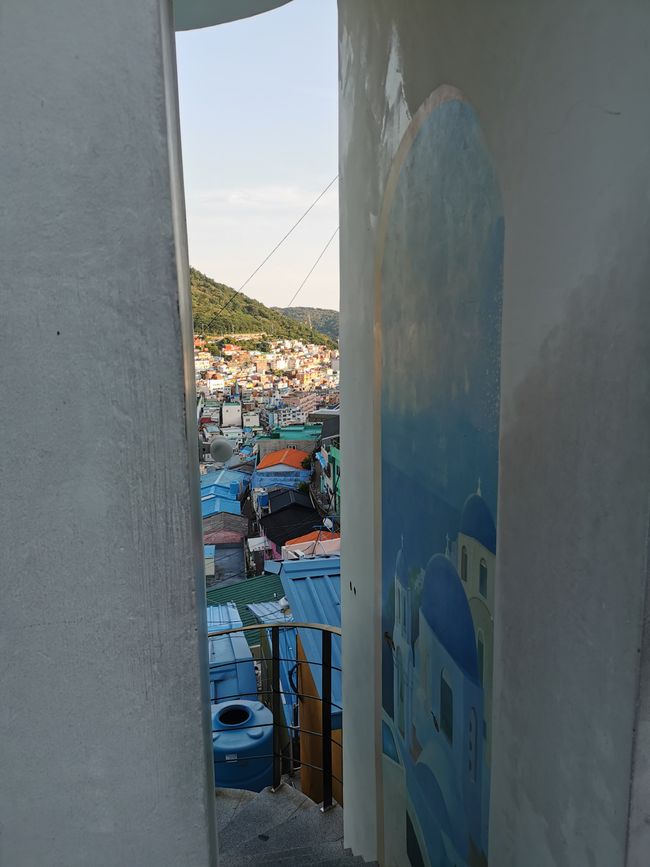
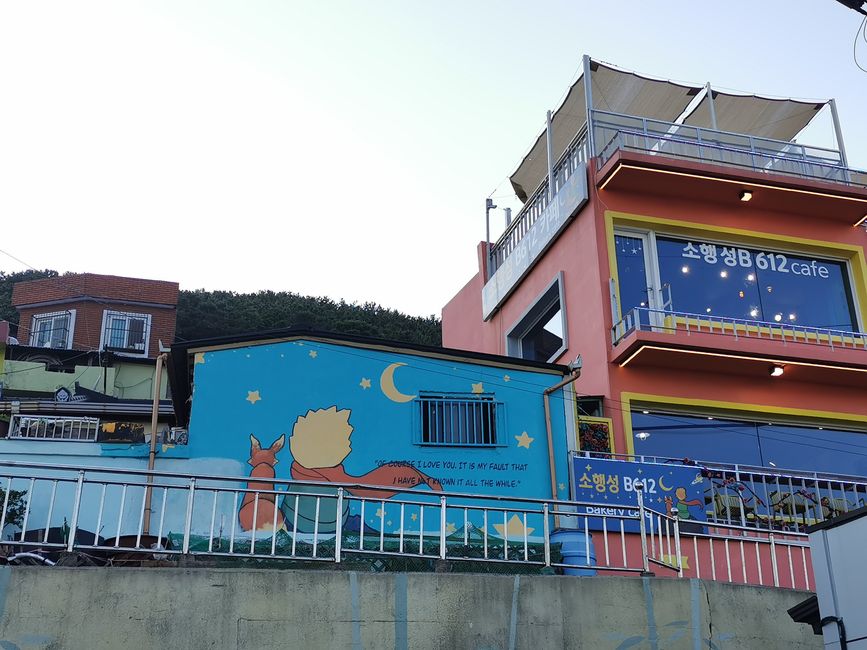
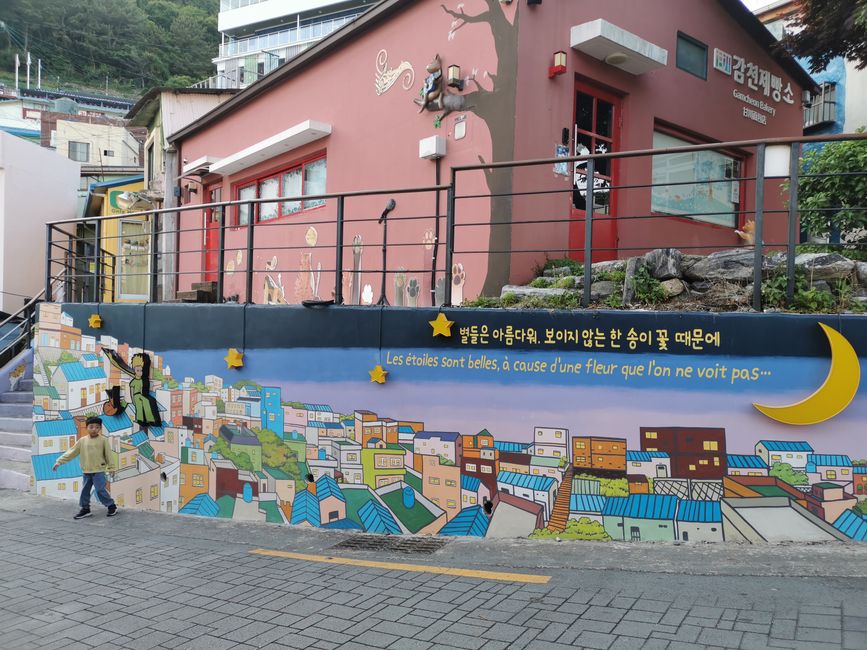
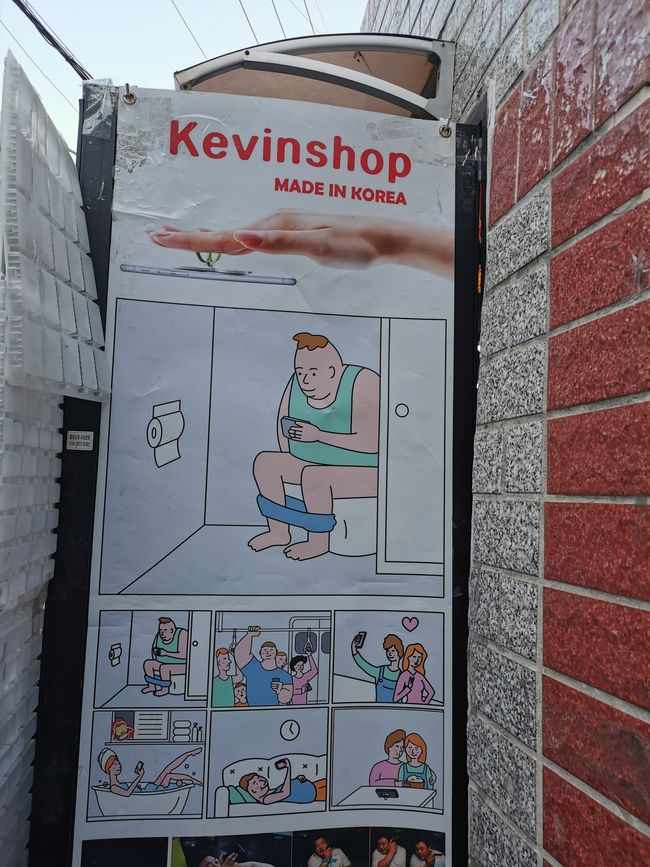
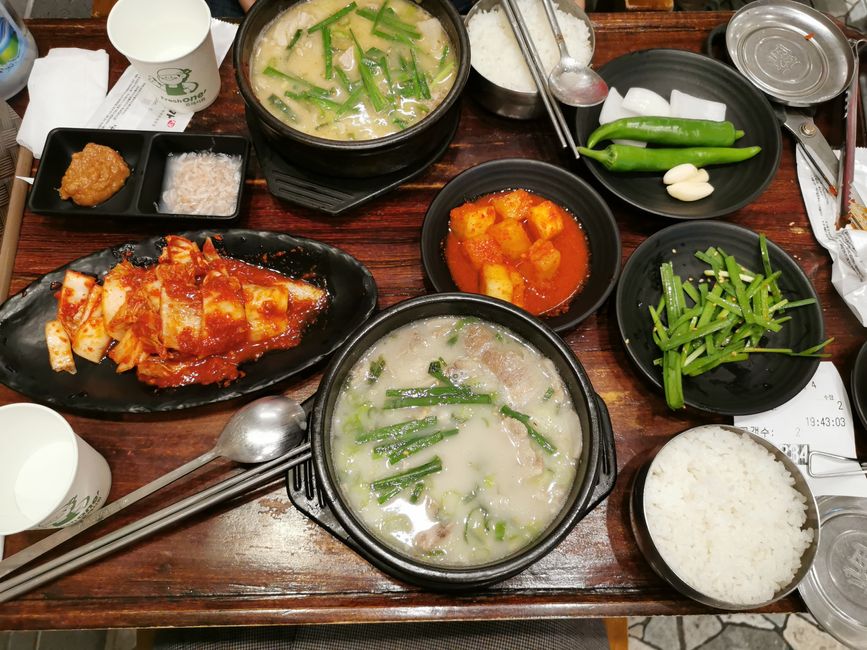
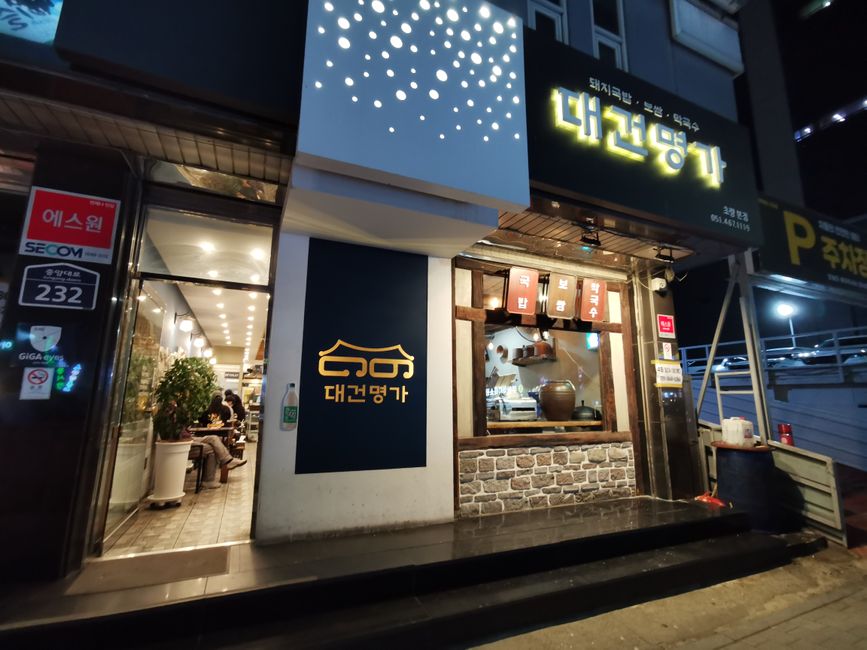
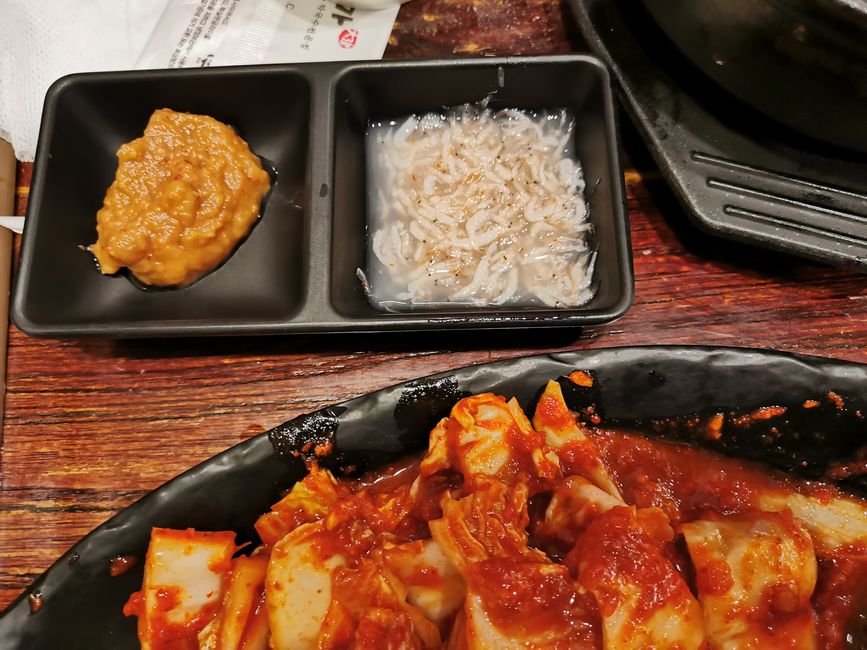
Kyerɛw wo din wɔ Newsletter no mu
The second to last day in Busan was wasted until lunchtime (you have to do that on vacation) and then started in Jeonpo Café Street. There are many small cafés to discover on this street. (Korea is a paradise for coffee drinkers, I tell you.) And what do you do on a café street like that? That's right: lunch! 😄
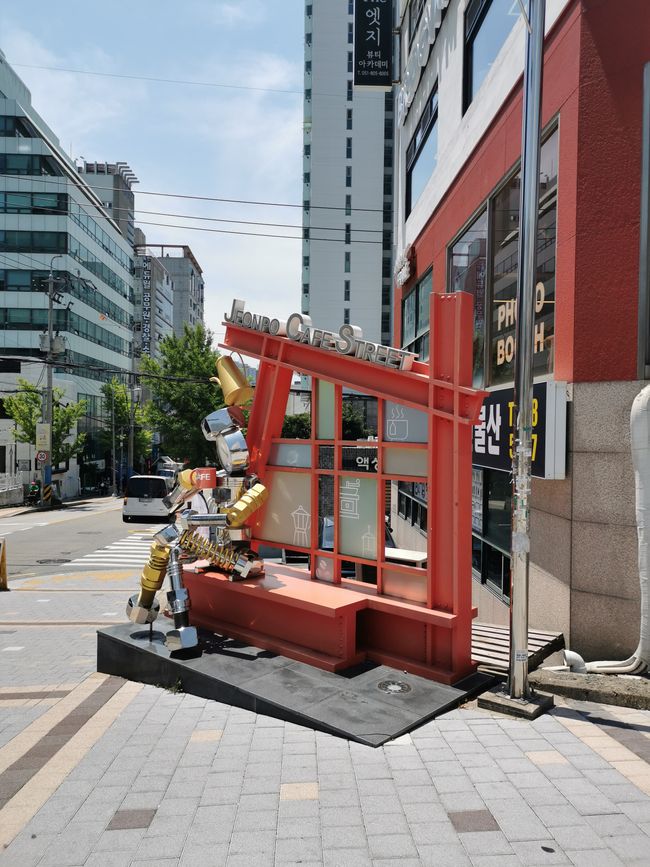
I had been craving salad the night before, so I was all the more pleased when I came across a small shop that offered just that. The salad bowl was generously filled with green salad, rice, mushrooms, carrots, tomatoes, chickpeas, broccoli and onions. It also came with a lemon dressing and a small bowl of corn soup, which was also super tasty. The food made me really happy!
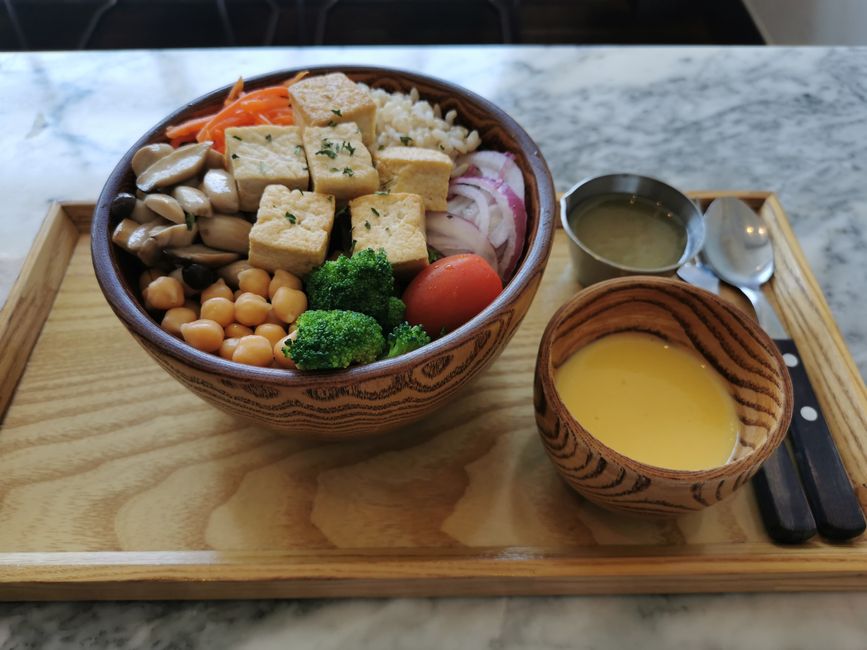
With the best weather — I had the feeling that Busan wanted to show its best side one more time — we then continued by subway and bus for about an hour and a half to the 해동 용궁사 (Hä-dong-jong-gung-sa Temple). There I was picked up again at the bus stop by my private tour guide to drive me up the hill to the Buddhist temple. 😉
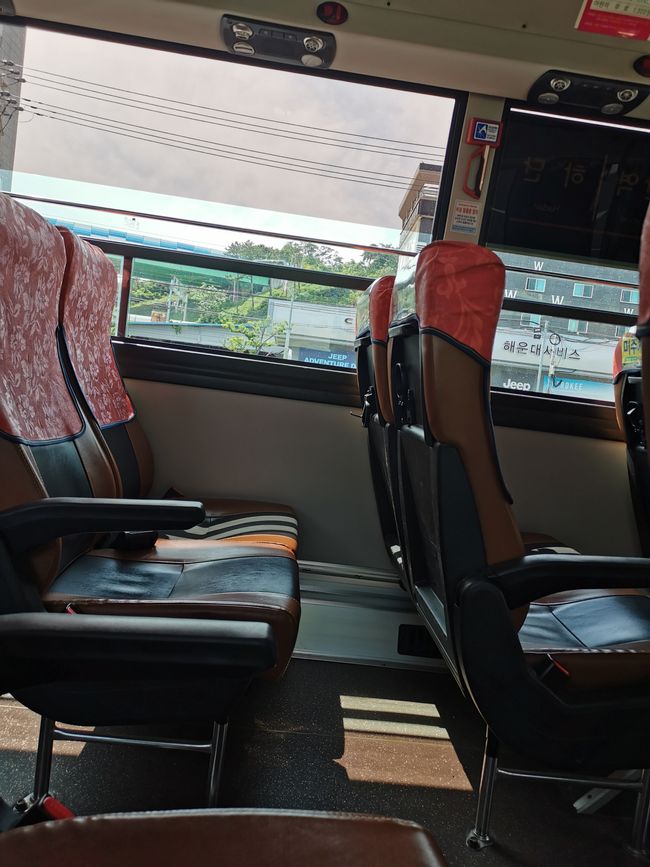
Fun fact: The Haedong Yongung Temple is one of the few in Korea that is built directly on the water. The name translates as “Dragon Temple on the Eastern Sea” and refers to the shape that the temple complex and the rocks form together, which is reminiscent of a dragon from a bird's eye view.
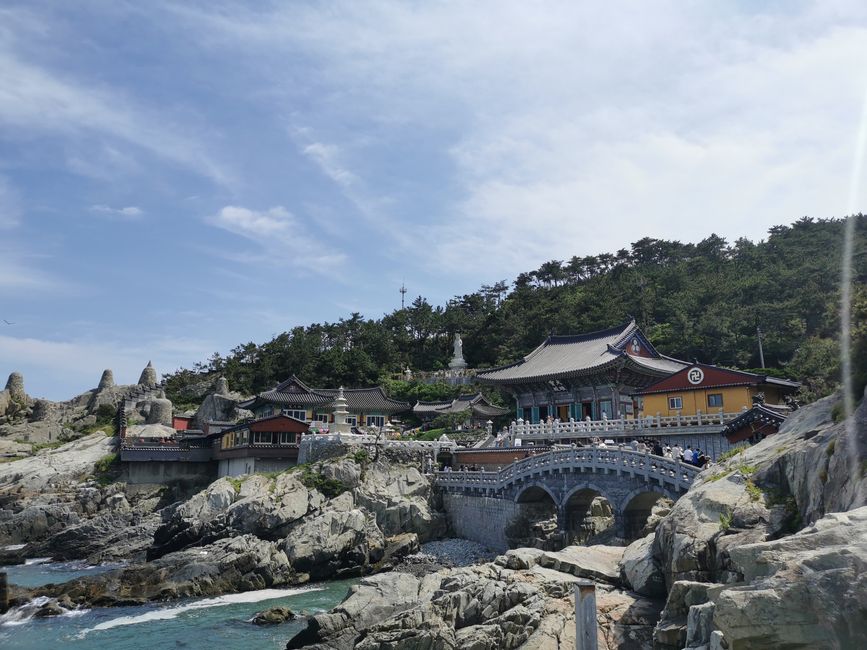
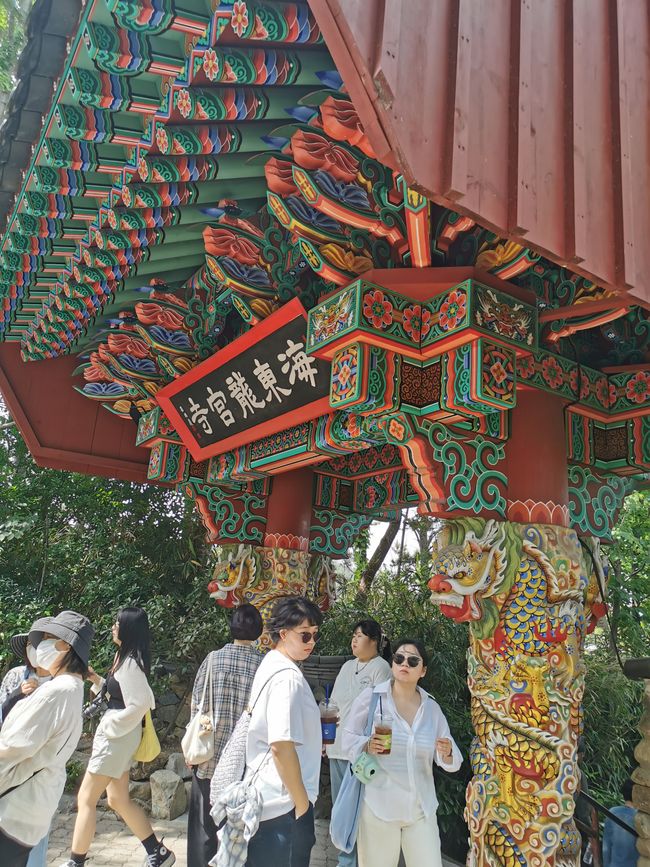
The temple is very popular with both foreign and Korean tourists, and so we pushed our way through the hustle and bustle of several school classes and people of all nationalities, with our ears wide open to see where people were from. I could recognize the European languages and my companion (his name is Dong-guk, by the way) could recognize the Asian language and the Korean dialects.
The game “Recognize the language on the wish lists” that were hung up all over the temple also fit in with this. For a small fee of 5,000 W (approx. €3.50) you can write your wishes on a golden sheet of paper and attach it to one of the designated places to present them to Buddha. When I think about it now, I'm annoyed that I didn't do that. Damn!
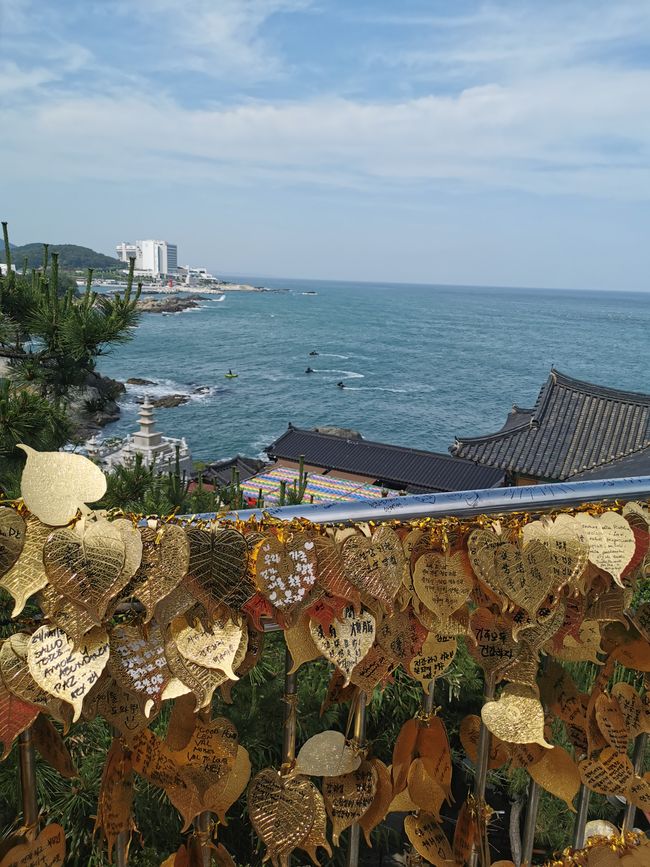
As a Korean who grew up Buddhist, my tour guide was able to explain some of the rituals and symbols to me. For example, the Korean Buddha has very large ears because that represents good luck.
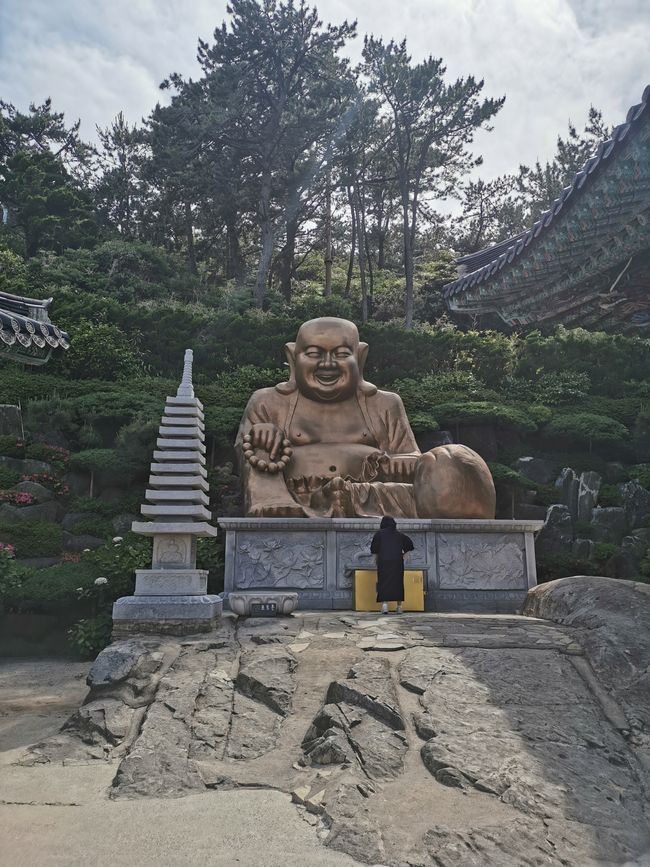
The entrance to the temple is guarded by stone figures of the signs of the zodiac, and if you know a little bit about it like he does, you can tell the year of birth from the animal and the appearance of the people having their photos taken next to it. (Incidentally, this is the year of the tiger, and I was born in the year of the horse.)
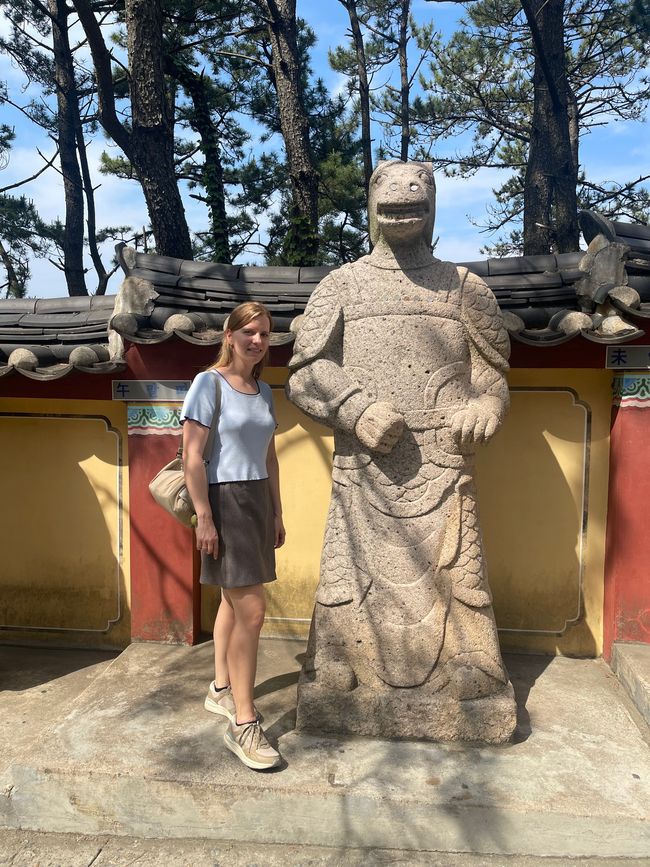
Get out of the tourist crowds and head to a secret spot: On the opposite side of the temple, just 10 minutes away by car, there is a really fancy posh resort with a beautifully situated walking path and cafes that are also open to non-guests. Dong-guk said that it was his favorite place and that he came here at least once a month, and I can understand why. Hardly any people, no (foreign) tourists at all, great nature and a fantastic view of the sea.
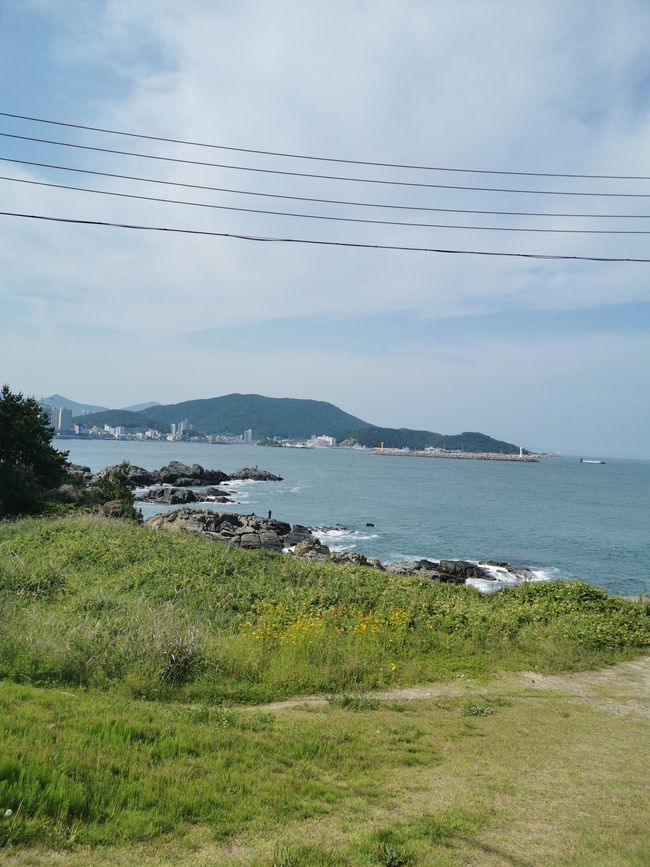
It smelled of salt water and freshly mown grass and flowers. A little way down the coast there was a tiny temple, or rather a shrine, on a rock in the sea. To get there you have to climb over rocks, between which I saw water cellar worms the size of prawns! (Unfortunately they were too fast to be photographed.)
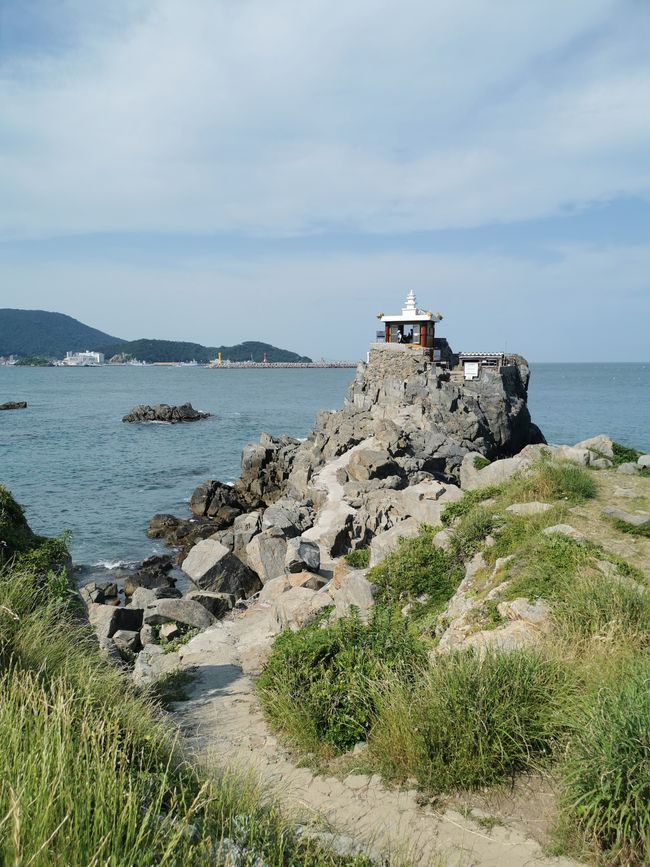
After an iced matcha latte and an encounter with Mieze Kittler (sorry, but side parting, beard and evil look? The cat was absolutely creepy.) we drove back to Busan, crossing both bridges that I had seen so far - the one at Gwangalli Beach (where the fireworks were) and the one that I can see from my window.
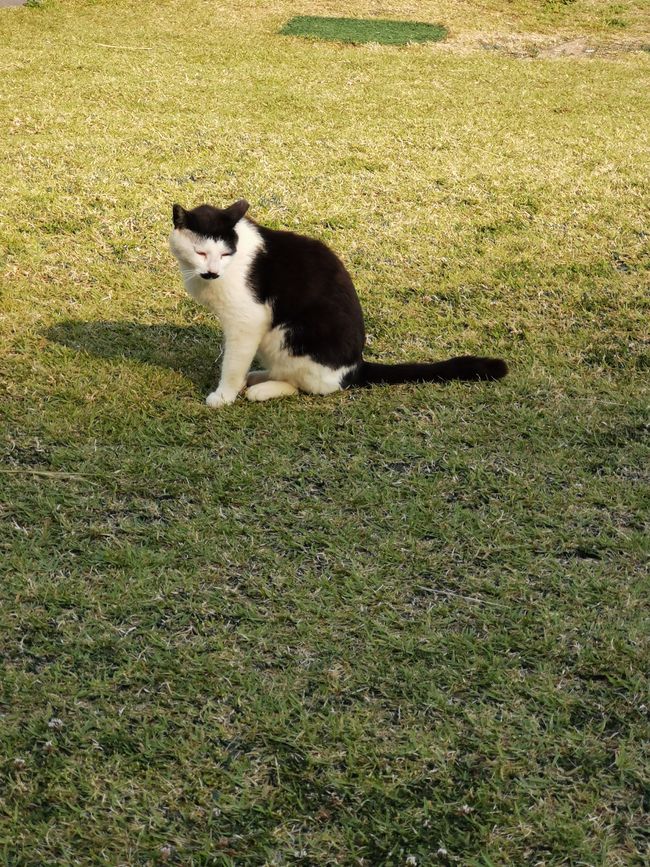
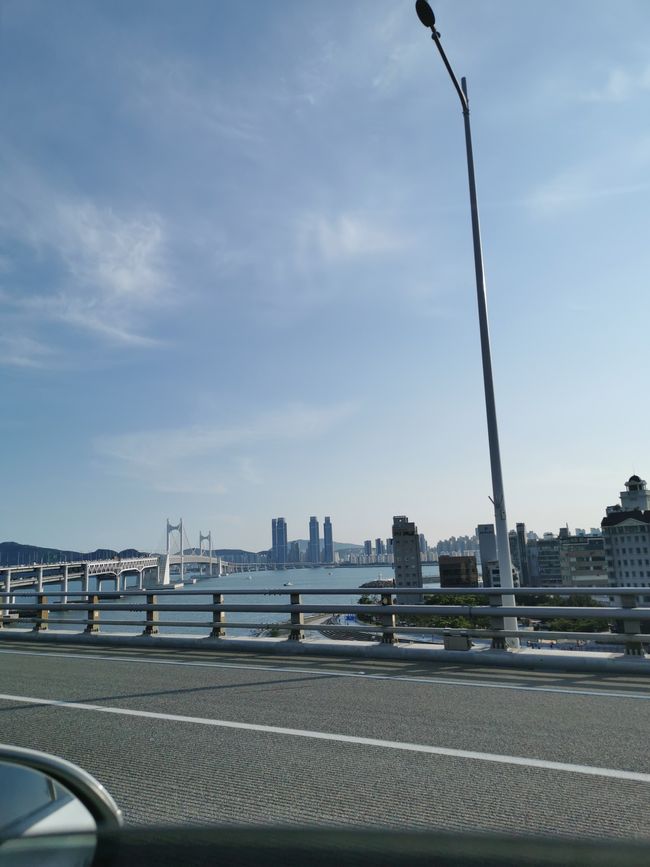
The destination was Gamcheon Culture Village, a former small village that has of course long since been incorporated. With its small alleys and colorful houses, the village is one of the tourist hotspots in Busan, and every travel blog raves about it. Reality couldn't really keep up with my high expectations... 😄
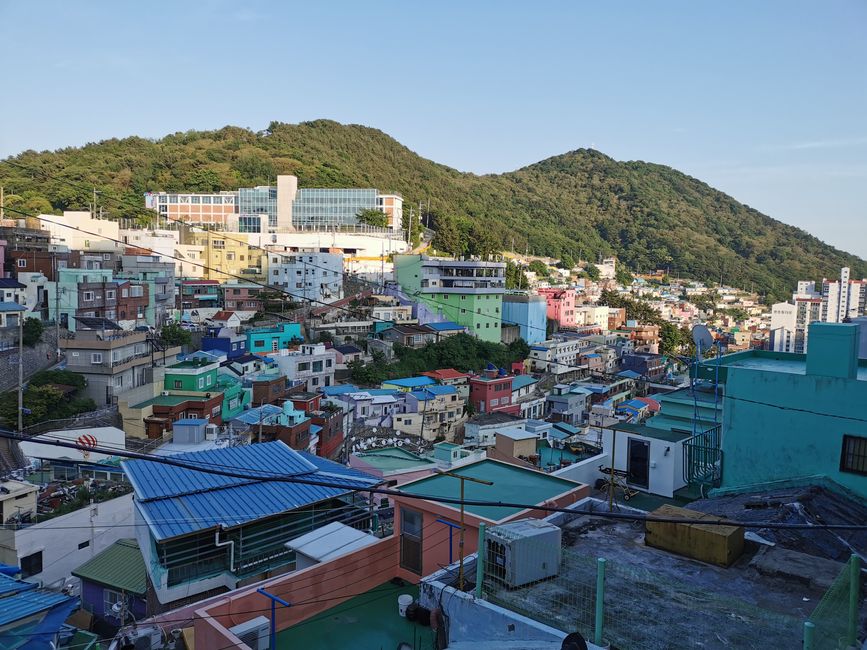
We arrived there around 6pm and the streets were deserted, most of the little stalls and shops were already closed. The colorful houses were beautiful and definitely something different, but when it comes to cute little alleys, nothing will ever beat my beloved Italy. What I didn't understand was that everything was somehow themed around the little prince. After all, it's a French story and has nothing to do with Korea.
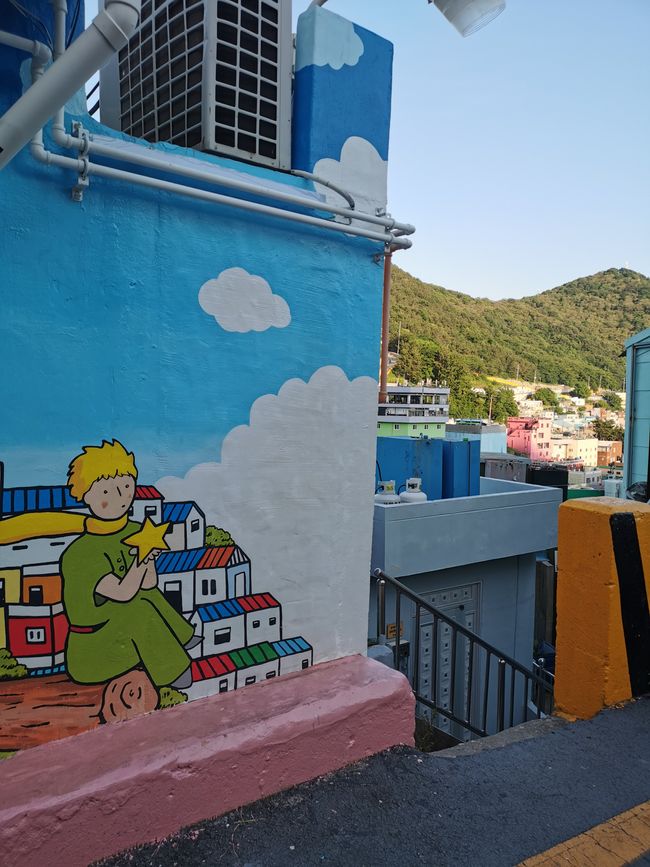
But if you love the Little Prince, like to take a thousand selfies in front of various backdrops or want to eat criminal food combinations like iced beer with honey, transparent mochi and rice cakes that look like chips, then this is the place for you. Maybe my need for small souvenir shops has now been satisfied for the time being. 😂
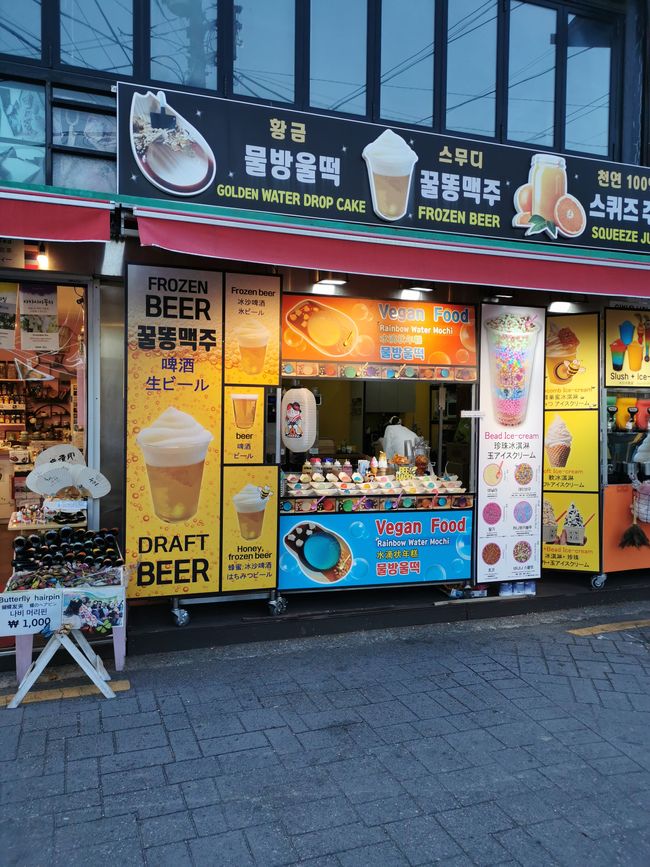
The day ended — of course — with the Busan speciality that we hadn't eaten the other day. And yes: 돼지국밥 (Dwe-dschi-guk-bap) is completely different in Busan than in Yongin.


The soup is seasoned to your taste with pepper, chili paste (gochujang), Korean chives and tiny little shrimps. This is then served with rice and various kimchi (here: radish and cabbage), fresh chilies as well as onions and garlic, which are dipped in ssamjang sauce and eaten raw. (Both are actually less spicy/intense in Korea than in Germany.) You can guess three times who woke up this morning with their own garlic smell. 😄🧄
Kyerɛw wo din wɔ Newsletter no mu
Anoyie (1)
uta
Mieze Kittler und der Knobi-Wecker... meine Highlights! 🤩🤗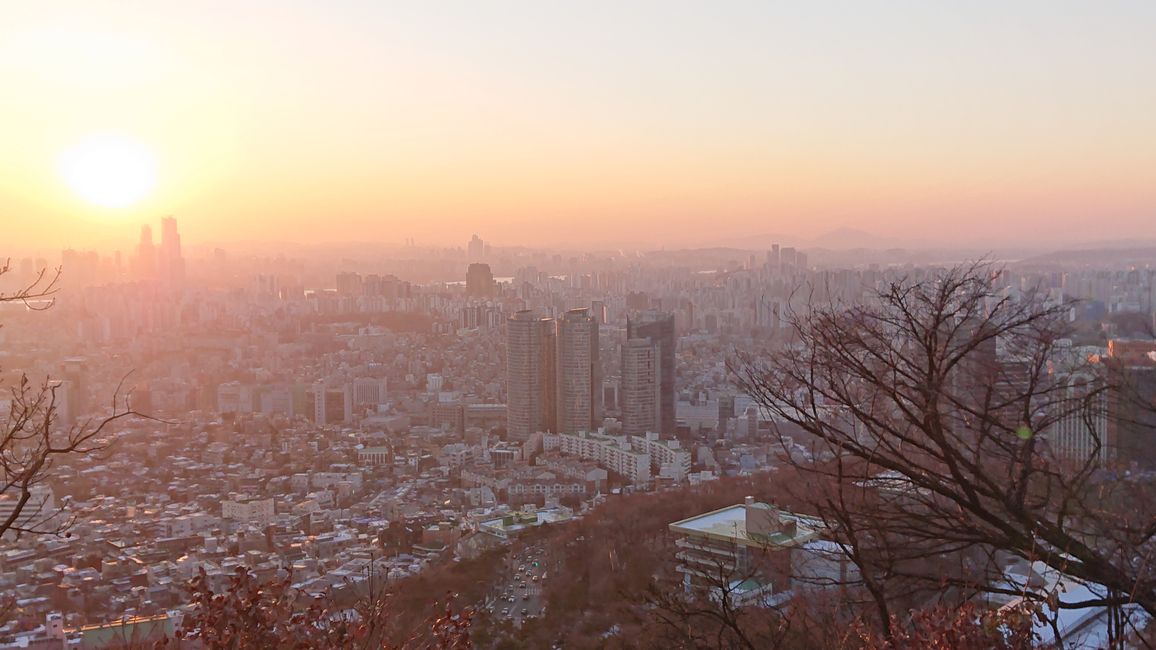
Akwantuo ho amanneɛbɔ South Korea
